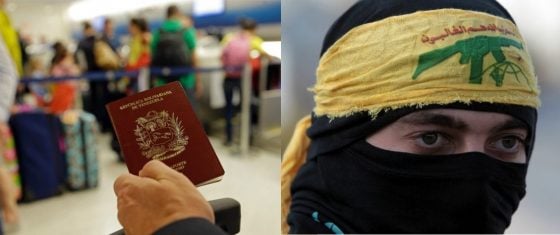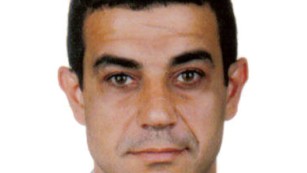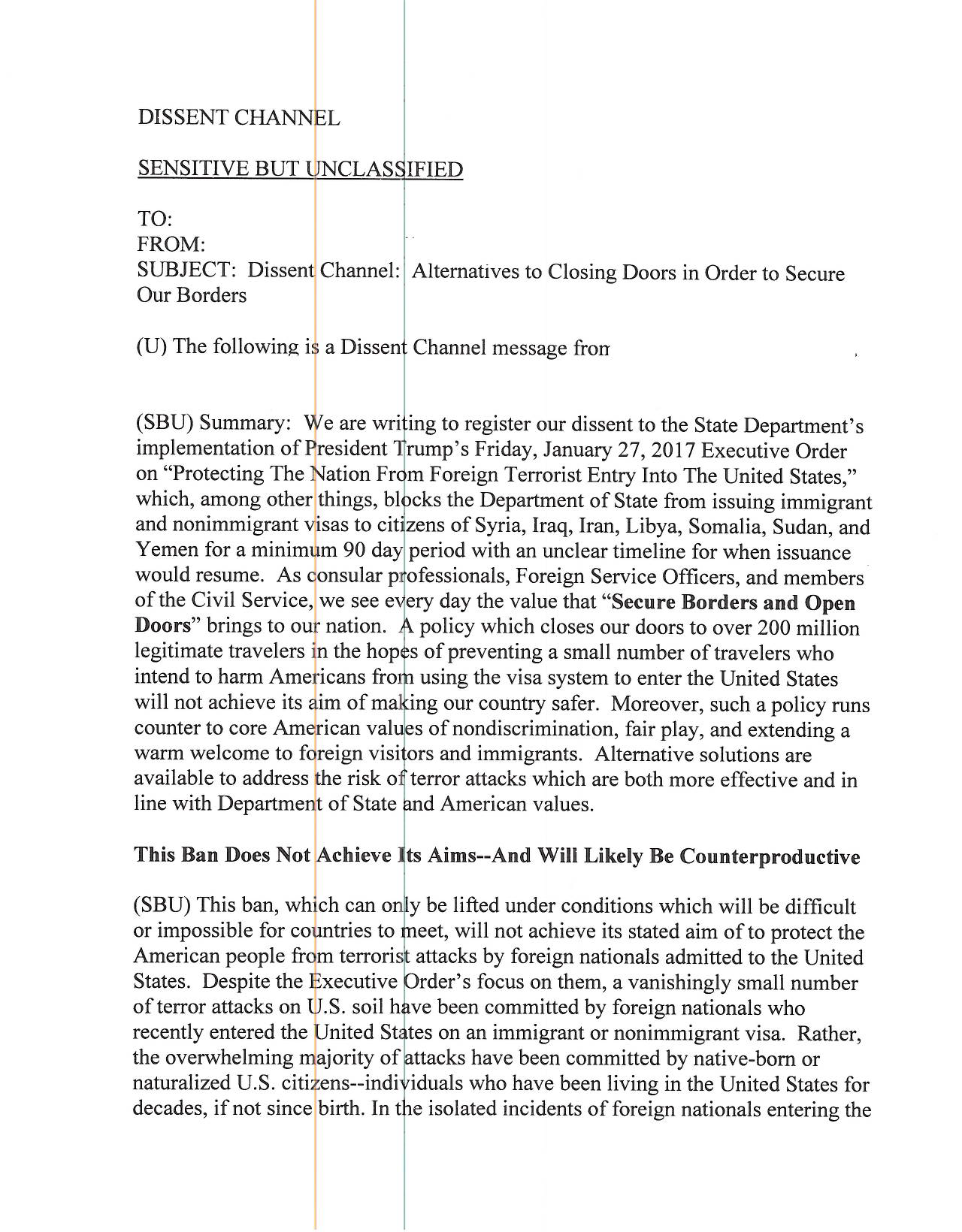My friend Tom Del Beccaro explains in his summary at Forbes how the Federal government maintains primacy over the states for immigration law and item 8 U.S. Code Section 1182, which the liberal court chose never to previously challenge.
In spite of the 9th Circuit 3 judge panel ruling maintaining the stay on the Trump Executive Order for the travel restraining order, there is much work to do administratively as this continues to be challenged.
The data is private and protected:
Once the information is entered into the system, RAPS generates an appointment notice for the collection of fingerprints used to complete criminal and background checks and to create Employment Authorization Documents (EADs), as appropriate. The applicant will appear at a USCIS service center to provide fingerprints and confirm application information.
RAPS then automatically initiates several background security check processes: Federal Bureau of Investigation (FBI) Name Check, United States Visitor and Immigrant Status Indicator Technology (US-VISIT) and DHS’ Automated Biometric Identification System (IDENT), Customs and Border Protection (CBP) TECS, FBI Fingerprint, and the ENFORCE Alien Removal Module (EARM) (for a full discussion of the background check process, see Section 5.1). RAPS also stores the results of security checks.
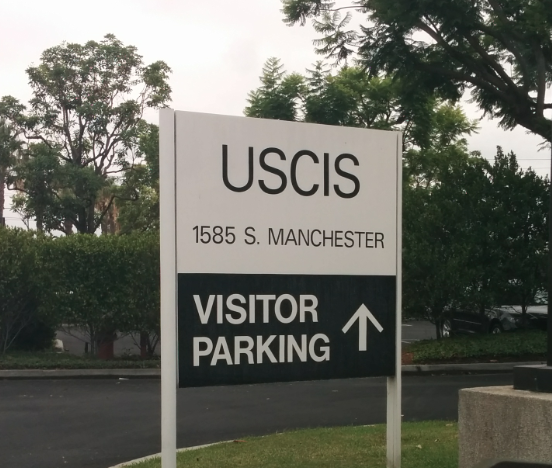

When a new application is entered into RAPS, it is forwarded to a USCIS Asylum Office for interview and adjudication. Asylum Offices use RAPS to schedule an asylum interview to evaluate the claim of asylum status and to conduct various aspects of case maintenance such as address changes, updates of information pertaining to dependent claimants, to record preliminary and final decisions, and to generate decision documents. An individual who files for asylum may include in his or her application any spouse or child who is within the United States and appears for the asylum interview. This is because a grant received by the principal asylum applicant is conveyed to the spouse and children included in the family group if the spouse/child is in the U.S. and not otherwise barred from a grant of asylum.
RAPS is a comprehensive case management tool that enables USCIS to handle and process applications for asylum pursuant to Section 208 of the Immigration and Naturalization Act (INA) and applications for suspension of deportation or special rule cancellation of removal pursuant to NACARA § 203. DHS offices worldwide can access RAPS as a resource of current and historic immigration status information on more than one million applicants. DHS officials can use RAPS to verify the status of asylum applicants, asylees, and their dependents to assist with the verification of an individual’s immigration history in the course of a review of visa petitions and other benefit applications as well.
RAPS Typical Transaction
A typical transaction begins when an individual initiates the process to apply for asylum by completing and filing Form I-589, Application for Asylum and for Withholding of Removal, with a USCIS Service Center, or in certain circumstances directly with an asylum office. Service Center personnel receive the application in person or via mail and manually enter, most, but not all, of the information from a new application into RAPS.
As set forth in Section 451(b) of the Homeland Security Act of 2002, Public Law 107-296, Congress charged USCIS with the administration of the asylum program, which provides protection to qualified individuals in the United States who have suffered past persecution or have a well-founded fear of future persecution in their country of origin as outlined under INA § 208 and 8 CFR § 208. USCIS is also responsible for the adjudication of the benefit program established by Section 203 of the Nicaraguan Adjustment and Central American Relief Act (NACARA § 203) (discussed in more detail in Section B below), in accordance with 8 CFR § 240.60 and the maintenance and administration of the credible fear and reasonable fear screening processes, in accordance with 8 CFR §§ 208.30 and 208.31. USCIS developed RAPS and APSS in order to carry out its obligations in administering these benefit programs.
Functions
RAPS and APSS track case status and facilitate the scheduling of appointments and interviews and the issuance of notices (including receipt notices, appointment notices, and decision letters) at several stages of the adjudication process. USCIS Asylum Offices use RAPS and APSS to:
- record decisions and to generate decision documents such as approval, dismissal, or rescission of an asylum or NACARA § 203 application,
- denial of an asylum application,
- administrative closure of an asylum application, or
- referral of an asylum or NACARA § 203 application to Executive Office of Immigration Review (EOIR).
The systems also initiate, receive, and record responses for national security and background check screening and prevent the approval of any benefit prior to the review and completion of all security checks. Finally, the systems provide fully developed and flexible means for analyzing and managing program workflows and provide the Asylum Program with statistical reports to assist with oversight of production and processing goals.
Read more from the two DHS documents here and here.
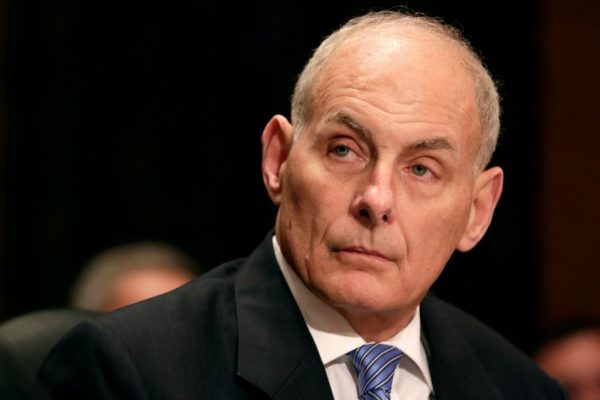
***
GAO Raps DHS for Failure to Get Security Data from Visa Waiver Countries
One of the requirements for allowing visa-free entry of tourists from countries in the Visa Waiver Program (VWP) is that those governments share with us information on nationals with terrorism links and/or criminal histories. According to a report of the Government Accountability Office (GAO) issued in May 2016, the Department of Homeland Security (DHS) has obtained those agreements with most of the countries, but more than a third of the agreements have not been implemented, and no data have been received from them.
In addition, Congress has required reports from DHS on implementation of the VWP with each of the participating countries, but GAO found that DHS has failed to provide many of those reports when due.
The recommendation of agency (GAO-16-498) is that, “DHS should (1) specify time frames for working with VWP countries on the requirement to implement information-sharing agreements and (2) take steps to improve its timeliness in reporting to Congress on whether VWP countries should continue in the program.”
FAIR has consistently pointed to the VWP as a national security threat and called for its termination. This GAO report underscores the security flaw and finds that it is exacerbated by cavalier implementation by DHS

